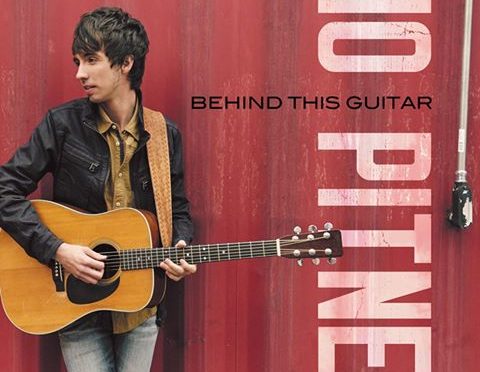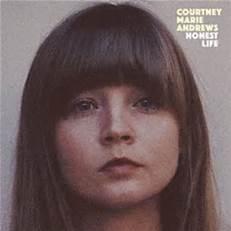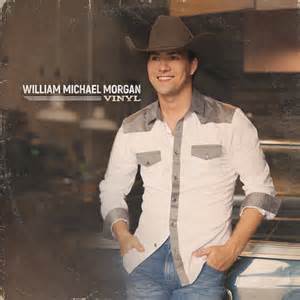Rating: 7.5/10
First of all, I know I’m quite late on this album review, and it was honestly because it took this long for me to think of anything to say about it. Some albums provoke an immediate reaction in me, and with others it takes time and several listens. I decided it was better to comment late and have the review more accurately fit my thoughts than to try and force a premature opinion. I will also say this is going to be a love it or hate it kind of album for many, due to reasons I will explain shortly.
Mo Pitney’s debut album comes almost two years after the lead single, “Country,” and for many listeners, only about half of this album was new. We can attribute this to Pitney being in the unenviable position of being signed to Curb Records–if that comment means nothing to you, you can read all about the previous dealings of Mike Curb here. To that end, a good portion of this album came out in singles ahead of its release.
Read: Single Review: Mo Pitney’s “Boy and a Girl Thing”
Pitney has sparked the interest of traditionalists in much the same way as William Michael Morgan, with all of the previously mentioned singles bringing a decidedly country sound. The weak point of most of these singles was the lyrics. Now we finally have a whole album, and a lot more to go on with Mo Pitney.
The album opens with “Country,” which is a complete exploration of that word, from what it means to live in the country to country music to soldiers fighting for their country. This song was underwhelming to me when it was released as the lead single because the lyrics were simple to almost bordering on cheesy. However, in the context of this album, it has grown on me quite a lot. I have discovered this slightly corny quality seems to be a trademark of MO Pitney. It is this trademark which will make the album a love or hate thing for a lot of people because it is pretty much present throughout the album.
“Cleanup on Aisle 5” sees the narrator standing in a grocery store after just running into his ex. It seems like he thought he was over her, but standing here with his box of Cheerios he knows that isn’t true. There is a sincerity in this song that also shines throughout the album, and that believability combined with acoustic guitars and light fiddle make this song stand out. “Come Do a Little Life” is a simple little love song in which a man is inviting a woman to spend the rest of her life with him. He describes all the things they can do together, from seeing a high school football game to going to the hardware store. It’s simple, but it works; in reality, you spend a lot more time doing mundane things like going to hardware stores than say, hooking up on tailgates. “Just a Dog” is easily the album highlight. We hear about how the narrator found the dog ten years ago on the side of the road in the rain, and thought, “It’s just a dog, right?” But he took her home, and then we hear about how he saved her when she got hit by a car, how she “lost her place on the couch” when he met a girl, and then how she helped him the night the woman left. In the end, we find out the dog has just died, and he is finally realizing how much more she was than “just a dog.”
“Everywhere” is the only song with more contemporary instrumentation, but I think it mixes the traditional and the modern rather nicely. Pitney sings about someone being everywhere with him; it could be a person, or it could be God, based on the ambiguity of the lyrics. “Boy and a Girl Thing” is next, and this one is the track I tend to skip. It’s the song where the cheesy element goes too far, citing all the ways a boy and a girl react to each other throughout the different stages of their lives. I liked it better as a single than I do in the album’s context. Another highlight is the upbeat, fun “I Met Merle haggard Today.” This song is about just that, and it’s simply a song that is just fun to listen to. “Take the Chance” advises people to take a chance when they meet someone. It’s honestly the lesser version of “As She’s Walking Away” by the Zac Brown Band and Alan Jackson; it’s the same message, but it’s very forgettable. It isn’t a bad song, but it could have been left off without effect.
“When I’m With You” is another fun, upbeat track about being with a woman; it doesn’t matter if they go anywhere or just sit together under the stars because it’s just about being with each other. The sincerity in Mo Pitney’s delivery helps the next track, “Love Her Like I Lost Her,” in which the man has a vivid dream about his girlfriend dying in a car crash. He calls her in the middle of the night to make sure she’s all right, and vows from now on to “love her like I lost her.” “Behind This Guitar” seems to be autobiographical, telling how Pitney grew up with music and is now living out his dream. He thanks all the people who helped get him to this point, and says, “I’m not the only one behind this guitar.” The album closes with “Give Me Jesus,” which many have cited as the worst moment of the whole thing. It’s a very simple song of faith, and personally, I would say even if you don’t have this faith, the honesty here is refreshing. It’s not a song like “Real Men Love Jesus,” where Christianity is some kind of checklist item of country cred. It’s genuine, and regardless of your beliefs, genuineness is desperately needed in country music right now.
Overall, this album is quite good. It remains country throughout, and there is a genuine sincerity about the whole thing. For me, it’s better as a collection of songs than as a whole album though, as the slight corniness starts to weigh the album down. Although there really isn’t a wrong step, aside from possibly “Boy and a Girl Thing,” there really isn’t much that stands out. “Just a Dog” is the exception to this. at the same time, I can see how many people would disagree, and find a lot to really love about this album. It’s one you really need to listen to for yourself, and definitely one that shows a lot of potential in Mo Pitney.


